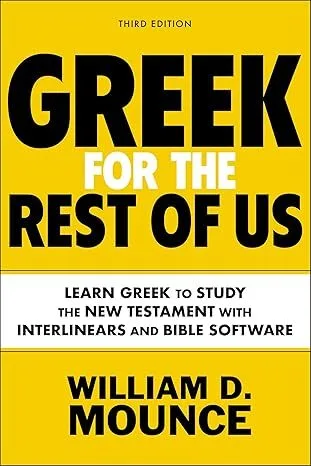Introduction
Understanding Greek words in Biblical studies is essential for gaining deeper insights into New Testament texts and the cultural context of ancient Greek society. The word ἐπιστάτης (Strong’s G1988: epistátēs) is particularly significant because it conveys the concept of authority and oversight. This term is often used to denote someone in a position of command or leadership, providing key insights into how authority is perceived in both the New Testament and classical Greek culture.

Key Information
ἐπιστάτης

Strong’s Entry
g1988
Key Information
- The Greek Word: ἐπιστάτης (epistátēs) [eh-pee-STAH-tace]
- Etymology: Derived from the preposition ἐπί (epi), meaning “upon” or “over,” and ἵστημι (histēmi), meaning “to stand.” Combined, they imply “one who stands over,” referring to an overseer or master.
- Part of Speech: Noun; masculine; first declension.
- The F.O.G Word Choice: Coming Soon.
Primary Meanings
- A master, overseer, or supervisor.
- One who commands or has authority over others.
- Used metaphorically to describe someone in a position of leadership or control.
Similar Words: δεσπότης (despótēs) [des-POH-tace] also means “master” or “lord,” but it often carries a connotation of absolute authority or ownership, unlike epistátēs, which focuses more on functional oversight and command rather than ownership.
Further Insights: The noun ἐπιστάτης is a masculine noun in the first declension. It is often used in both secular and religious contexts to describe a person with authority, whether in governance, military, or religious leadership. Its usage suggests a sense of responsibility and oversight rather than despotic control.
| Case | Singular | Plural |
|---|---|---|
| Nominative | ἐπιστάτης | ἐπιστᾶται |
| Genitive | ἐπιστάτου | ἐπιστατῶν |
| Dative | ἐπιστάτῃ | ἐπιστάταις |
| Accusative | ἐπιστάτην | ἐπιστάτας |
Click here for a beginner’s guide to reading Greek: Understanding Greek Grammar: A Beginner’s Guide.
Lexicon Insights
BDAG:
ἐπιστάτης is defined as “one who stands over,” used particularly in contexts where authority, guidance, or oversight is necessary. It is often used in addressing a teacher or someone in a role of instruction or leadership.
Thayer’s Lexicon:
Describes epistátēs as a “commander” or “overseer,” particularly in military or administrative contexts. The term is sometimes translated as “master” in the New Testament, highlighting its authoritative connotation.
Vine’s Expository Dictionary:
Notes that epistátēs is commonly translated as “master” in the Gospels, where it is used to address Jesus. It emphasizes Jesus’ role as an authoritative figure who commands respect and obedience.
LSJ (Liddell-Scott-Jones):
Emphasizes the usage of epistátēs in classical texts to denote a superintendent or foreman, someone who directs work or oversees a group, reflecting the term’s broader applicability in non-religious settings.
Strong’s Exhaustive Concordance:
Defines epistátēs as “an appointee over,” often translated as “master” or “teacher” in the New Testament, and is used to indicate one who has been placed in charge or holds a position of authority.
Related Scripture References
- Luke 5:5: “And Simon answering said unto him, Master [ἐπιστάτα (epistata)], we have toiled all the night, and have taken nothing: nevertheless at thy word I will let down the net.”
- Luke 8:24: “And they came to him, and awoke him, saying, Master [ἐπιστάτα (epistata)], master, we perish. Then he arose, and rebuked the wind and the raging of the water: and they ceased, and there was a calm.”
- Luke 9:33: “And it came to pass, as they departed from him, Peter said unto Jesus, Master [ἐπιστάτα (epistata)], it is good for us to be here: and let us make three tabernacles; one for thee, and one for Moses, and one for Elias: not knowing what he said.”
Classical Usage
| Author | Name of Work | English Text |
|---|---|---|
| Plato | Laws | “The overseer (ἐπιστάτης) of the city should ensure justice is maintained.” |
| Herodotus | Histories | “Each troop had its own commander (ἐπιστάτης) who led them in battle.” |
| Xenophon | Cyropaedia | “He appointed an overseer (ἐπιστάτης) to manage the training of the youth.” |
| Septuagint | Exodus 5:6 (LXX) | “And Pharaoh commanded the same day the taskmasters (ἐπιστάτας) of the people, and their officers.” |
| Septuagint | Numbers 11:16 (LXX) | “And the Lord said unto Moses, Gather unto me seventy men of the elders of Israel, whom you know to be the overseers (ἐπιστάτας) of the people.” |
| Septuagint | 2 Kings 11:18 (LXX) | “And all the people of the land went into the house of Baal, and broke it down…and made the overseers (ἐπιστάτας) of Baal.” |
Summary of ἐπιστάτης (G1988: epistátēs)
The Greek word ἐπιστάτης (epistátēs), meaning “master” or “overseer,” is a noun that highlights authority and responsibility in leadership roles. Used frequently in the New Testament to address Jesus as “Master,” it provides important insights into His perceived role of authority among His followers. The term also has a rich usage in classical Greek literature and the Septuagint, emphasizing various forms of leadership, command, and supervision. Its nuanced meanings across different contexts—from Biblical passages to secular governance—make epistátēs a vital term for understanding authority in ancient Greek and Christian thought.
Did You Know?
Did you know that ἐπιστάτης is used exclusively in the Gospel of Luke to address Jesus, underscoring His unique role as a leader and teacher among His disciples? This specific usage not only distinguishes Jesus’ authority but also aligns with the Hellenistic concept of a leader who oversees, guides, and protects those under their care.
Note: While this entry strives for accuracy, readers engaged in critical research should verify citations and keyword occurrences in their Bible translation of choice. For Biblical citations, the F.O.G Bible project recommends Logos Bible software.
Strong's g1988




